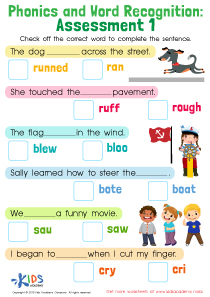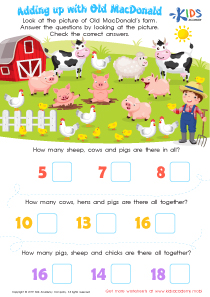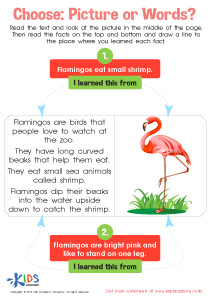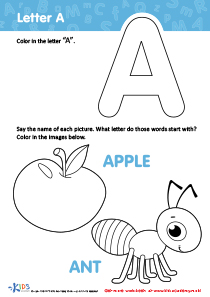Normal Where You Live Quizzes for Ages 4-6
1 results
1 filtered results
Clear all filters1 filtered results
-
From - To
Dive into our captivating "Normal Where You Live" interactive assessment quizzes, meticulously tailored for children aged 4-6. These quizzes are a delightful journey through the wonders and uniqueness of various living environments, encouraging young minds to explore and understand the world around them. With each quiz, children will not only test their knowledge but also receive constructive feedback, enhancing their learning experience. Our quizzes are designed to be engaging, educational, and fun, making them the perfect tool for early childhood development. Join us in this interactive adventure and watch your child's curiosity and knowledge about their living surroundings flourish.
In today’s fast-paced world, it is crucial to equip our young learners with not just academic knowledge but also a deep understanding of their immediate environment. This is where our interactive quizzes on "Normal Where You Live for Ages 4-6" come into play, serving as an invaluable resource for children in their foundational years. Designed specifically for youngsters aged 4 to 6, these quizzes merge education with entertainment, creating a learning experience that is both engaging and informative.
Understanding the world begins right at home, and "Normal Where You Live for Ages 4-6" is crafted to help children gain a comprehensive insight into their local environment. These quizzes cover a variety of topics relevant to a child’s immediate surroundings, from identifying local landmarks and understanding neighborhood maps to recognizing common plants and animals found in their area. By integrating these subjects into interactive quizzes, children are not only learning but are also developing a curiosity and appreciation for the world around them.
The benefits of the "Normal Where You Live for Ages 4-6" quizzes are manifold. First and foremost, they offer a personalized learning experience. Children can explore at their own pace, which is pivotal in these early stages of development when learning speeds can vary greatly from one child to another. Through repetition and the engaging nature of interactive quizzes, children can reinforce their learning, ensuring that the information is retained and understood thoroughly.
Moreover, these quizzes are designed to enhance cognitive skills such as problem-solving, critical thinking, and decision-making. As children navigate through the questions, they are encouraged to think independently, make choices, and deduce answers, thereby bolstering their cognitive development. This early introduction to problem-solving and critical thinking lays a solid foundation for their academic journey ahead.
Social awareness is another significant benefit of the "Normal Where You Live for Ages 4-6" quizzes. By learning about their local environment, children become more connected to their community. They learn about the importance of taking care of their surroundings, understanding community roles, and the significance of cultural landmarks. This fosters a sense of belonging and responsibility towards their community, instilling early values of citizenship and environmental stewardship.
Furthermore, these quizzes are designed with young learners in mind, ensuring that the content is age-appropriate, engaging, and visually appealing. Bright colors, interactive elements, and friendly characters make the learning process fun and inviting. This positive association with learning from an early age is crucial in fostering a lifelong love for education.
In conclusion, the "Normal Where You Live for Ages 4-6" interactive quizzes are more than just an educational tool; they are a gateway to nurturing well-rounded, informed, and responsible individuals. By incorporating these quizzes into their study routine, children not only learn about their immediate world in a fun and engaging way but also develop essential cognitive and social skills that will benefit them throughout their educational journey and beyond. It is an investment in our children’s future, helping them become active, aware, and responsible members of society.











